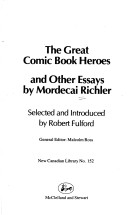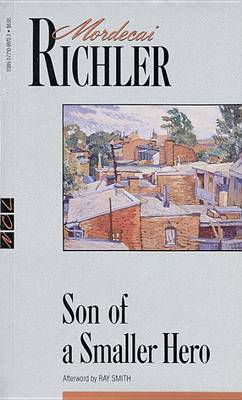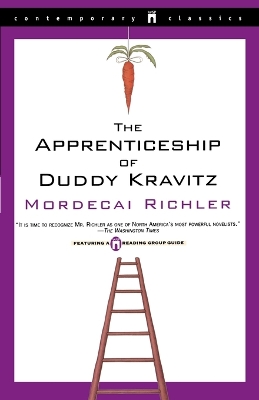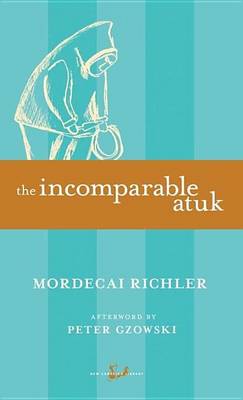New Canadian Library
1 primary work • 5 total works
Book 152
Young Noah Adler, passionate, ruthlessly idealistic, is the prodigal son of Montreal’s Jewish ghetto. Finding tradition in league with self-delusion, he attempts to shatter the ghetto’s illusory walls by entering the foreign territory of the goyim. But here, freedom and self-determination continue to elude him. Eventually, Noah comes to recognize “justice and safety and a kind of felicity” in a world he cannot – entirely – leave behind. Richler’s superb account of Noah’s struggle to scale the walls of the ghetto overflows with rich comic satire. Son of a Smaller Hero is a compassionate, penetrating account of the nature of belonging, told with the savage realism for which Mordecai Richler’s fiction is celebrated.
The Apprenticeship of Duddy Kravitz is the novel that established Mordecai Richler as one of the world’s best comic writers. Growing up in the heart of Montreal’s Jewish ghetto, Duddy Kravitz is obsessed with his grandfather’s saying, “A man without land is nothing.” In his relentless pursuit of property and his drive to become a somebody, he will wheel and deal, he will swindle and forge, he will even try making movies. And in spite of the setbacks he suffers, the sacrifices he must make along the way, Duddy never loses faith that his dream is worth the price he must pay. This blistering satire traces the eventful coming-of-age of a cynical dreamer. Amoral, inventive, ruthless, and scheming, Duddy Kravitz is one of the most magnetic anti-heroes in literature, a man who learns the hard way that dreams are never exactly what they seem, even when they do come true.
Living in a rat-infested hotel in Franco’s post-war Spain, André Bennett, a Canadian painter, loves Toni, his girl friend, who wants him to return home. Roger Kraus, a Nazi on the run, shadows the young artist day and night. They meet on a bridge during the last night of the fiesta, and as the sky is shredded by exploding fireworks, the story draws to its violent climax. Originally published in 1954, The Acrobats marks Mordecai Richler’s stunning debut as a novelist.
Transplanted to Toronto from his native Baffin Island, Atuk the poet is an unlikely overnight success. Eagerly adapting to a society steeped in pretension, bigotry, and greed, Atuk soon abandons the literary life in favour of more lucrative – and hazardous – schemes.
Richler’s hilarious and devastating satire lampoons the self-deceptions of “the Canadian identity” and derides the hypocrisy of a nation that seeks cultural independence by slavishly pursuing the American dream.
Richler’s hilarious and devastating satire lampoons the self-deceptions of “the Canadian identity” and derides the hypocrisy of a nation that seeks cultural independence by slavishly pursuing the American dream.




